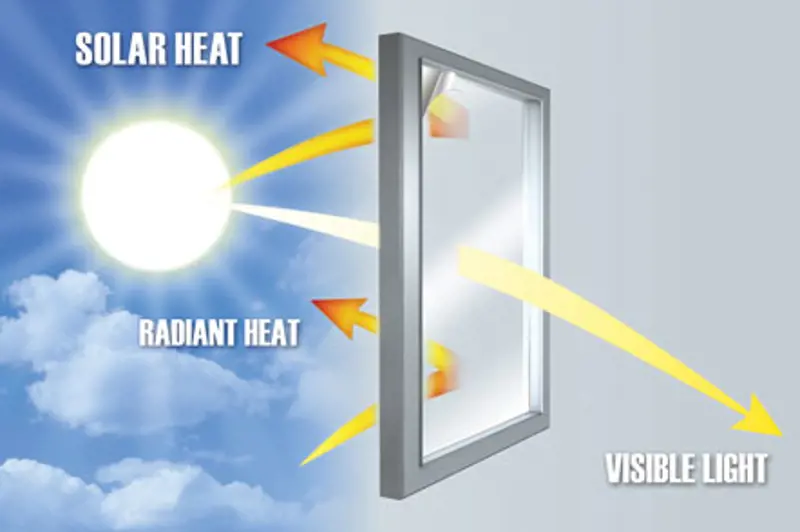
What Are Argon Gas-Filled Windows?
We do our research at Brennan. Our aim is to provide the best products and services for homeowners in North Texas. In the past 40 years, we've completed thousands of remodeling projects across Dallas-Fort Worth. We’ve learned a lot about the components that make good windows, doors, roofing, and siding. With that, we aspire to offer expert advice to the communities we serve.
Window replacement is an important decision for homemakers. The right windows can not only enhance the charm of our homes but the value we extract from them. There are so many window options, though. Which choice is best?
There are several ways to answer the above depending on what you define as “best” case scenario for your home. Today we’ll focus on how insulation components, specifically - argon gas - can add value to the windows on your home. Not sure what argon gas is or what gas-filled windows are? That's exactly what we'll explain in this article.
Argon is a chemical element that is a byproduct of oxygen and nitrogen. The third most abundant gas on earth, it’s one of the best tools to use in the building of energy efficient windows.
Properties of Argon Gas
When we're asked 'what's a gas-filled window?' or 'what are argon windows?', the answer is they are insulated glass windows or as we know them, Insulated Glass Units (IGUs). Argon is just one MAJOR component that improves the insulation power of your window unit.
Argon gas is one of two types of gasses often used in IGUs, the other is krypton gas.
Insulated glass units are constructed by taking two (or three) panes of glass and inserting gas between the empty spaces. The extra hardware in IGUs increases the barrier between the inside of your home and the outside environment. Argon can be used in either double or triple pane units.


Before we discuss argon’s role in Insulated Glass Units (IGUs), let’s make sure we understand the fundamentals of this chemical.
Argon is a noble gas. Remember what that means? If not, no problem. We’ll break it down. In their purest state, the six noble gases are:
- Colorless
- Odorless
- Stable (or inert, meaning they rarely react with other chemicals)
Because of these characteristics, we use noble gases across a variety of industries. Argon gas is non-toxic, so it shouldn't come as a surprise to know it's in a lot of our everyday products. It is in our light bulbs and refrigerants. It's also used in some food packaging to discourage moisture. There are some Insulated Glass Units that are air-only. The moisture content of oxygen makes these windows susceptible to condensation. Argon gas filled windows are a better option to avoid this.


Window Insulation & Efficiency
We ran down some of the characteristics of argon. But how is it used in windows? What makes it suitable for window insulation?
Most argon IGUs will include a combination of argon and oxygen (air). Argon is denser than air and has a thermal conductivity rate 67% lower than air. That density is what makes heat and cold transfer much harder with an argon-filled IGU.


Extending the life of your windows helps improve your return on investment. The better you are at maintaining your high-performance window, the longer you'll be able to extend the life and benefits of your replacement windows. The insulation properties of argon gas provide a long-term benefit in the way of energy efficiency. Solar Heat Gain Coefficient (SHGC) and U-factor assess how well a window prevents heat accumulation and heat/cold transfer. The lower the ratings the better the insulation properties. Energy Star’s window efficiency standards for North Texas (South Central region) require that windows have a SHGC of 0.25 or less and a U-factor of 0.30 or less.


Here are just a few Energy Star certified argon IGUs we offer at Brennan:
- Andersen 400 Series - Double hung with Low-E Sun coating
- Milgard Tuscany Series - Double hung with Low-E coating
- NT Window Executive Series - Single hung with Low-E coating
What to Consider with Argon Gas
Nobody wants poorly sealed windows. With an Insulated Glass Unit, a leak means that valuable gas escapes. Remember, the argon in the unit is key in reducing thermal transfer. If it’s leaking, that means your window’s efficiency is taking a major hit. From an aesthetic perspective, seeping argon means more air in between the glass and you guessed it - fog. To avoid leaks, make sure to seek professional installation services to help preserve the integrity of your windows.
Argon is an inert gas which is much denser than the atmosphere. The stability of this gas makes it suitable for use in Insulated Glass Units - double or triple pane glass. Thicker than air, argon slows thermal transfer to reduce indoor temperature fluctuations. Colorless and odorless, the gas is a non-toxic option for homeowners seeking to increase their home’s energy efficiency. Brennan carries several lines of argon-filled windows. Just as important, we have a team of well-seasoned and well-vetted professionals to ensure your windows are expertly fitted to your home.
Ready to learn more about how new windows could improve your home's energy efficiency? Call us today at 817-860-9767 for a consultation.
Oops!
We don't currently serve your area but do want to help you plan your project. Try our Build & Price tool to get an idea of window & door costs within DFW. Your area may be higher or lower but at least you'll have some idea of the price.
Thanks for stopping by.







